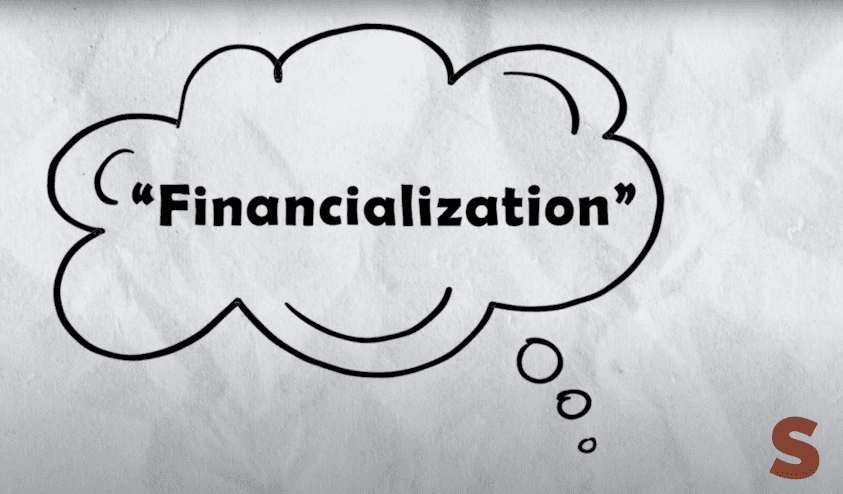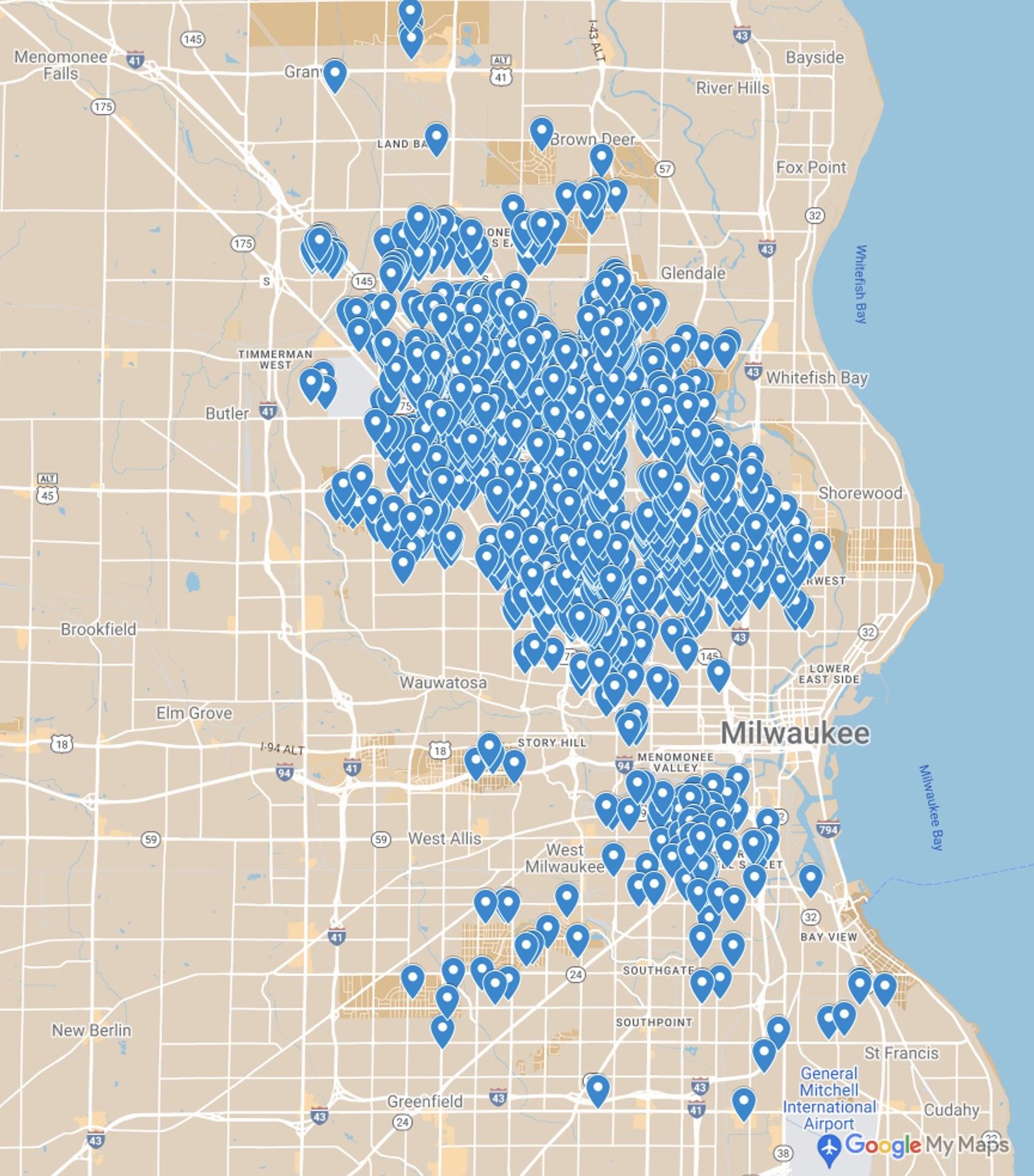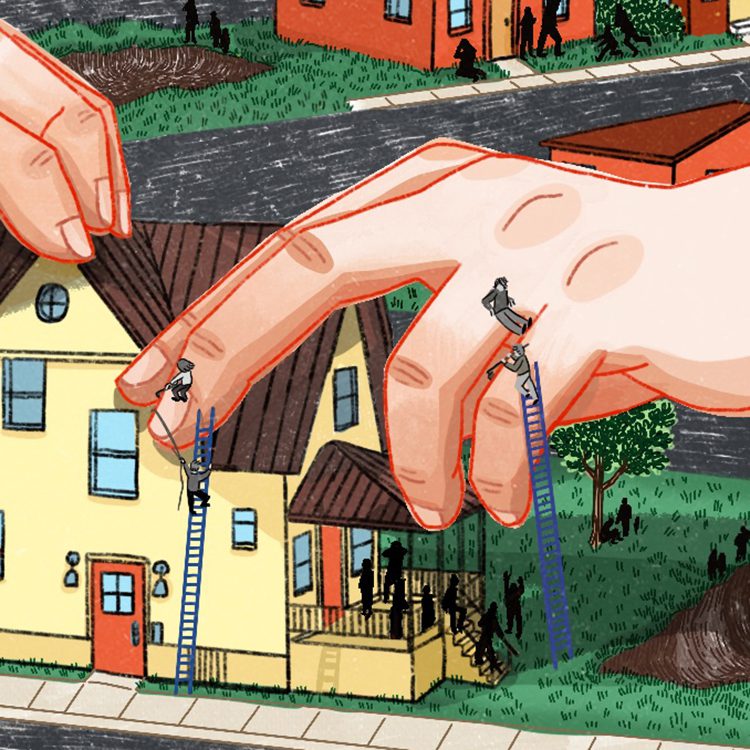This article is part of the Under the Lens series
Houses and apartments are increasingly being bought up by faceless corporations and speculators. In the conversations about this phenomenon, many people refer to it as being a product of the “financialization of housing.” That’s a very wonky term. What does it mean?
The short answer is it means treating a home like a financial asset first, and a place for someone to live second. This has a lot of consequences for both residents and the housing market.
Here are some slightly longer answers from a few different perspectives:
Don Layton, senior visiting fellow, NYU Furman Center; former CEO of Fannie Mae:

Don Layton
When you talk about financialization, you are talking about an asset becoming more liquid. A stock that goes public is more liquid than a stock that isn’t public, for example. Why are some publicly traded stocks more liquid than others? Because of the ability to finance them easily.
The classic version of homeownership—going back now, say, 80 years—you moved in, you usually stayed there for decades, often to retirement. You then burned the mortgage after 20 or 30 years. This was housing before it got financialized.
These days, people live longer. They are trading residences for normal lifecycle purposes more than they traditionally did. When you get old, you’re selling the house, moving into some retirement community and then maybe an assisted living place. There’s a lot more buying and selling of homes in a family’s lifetime. Culturally, you have less emotional attachment to a house as a super long-term thing; it’s a bit more of a transaction.
Adding to this, financialization really is heavily dependent on the ability to specifically borrow against a home you already own after its value has gone up, in order to increase the amount of your loan. In other words, to do what is called a “cash out refi.” In addition, the cost of doing a mortgage transaction has come down as electronics are finally coming into play—so the cost to do a refinancing today versus what it was 20 or 30 years ago is very small.
Another thing more recently driving housing financialization is being able to easily estimate the value of your own home via Zillow or another source. Decades ago your house had, for example, a $100,000 value and you didn’t care that much about its value moving up because you expected to live in it for decades and just kept making your monthly payments. Well, now people start following house values like stocks—”Oh, it’s up to $120,000, I’m going to refi and do cash out.” And you’re getting online solicitations to do just that all the time.
All these trends come together to start making people think of their house more as a financial asset and less like their “home,” and they react accordingly. The same trends make housing a more easily traded and more easily financed asset. Added up, that’s financialization.
Martine August, associate professor, University of Waterloo School of Planning:

Martine August
Financialization refers to this broader change that has been happening in the global economy now for many decades, since at least the ’70s, in which finance is taking a more dominant role in the operations of capitalism. Increasingly we’re seeing that financial investment, often speculative, is where money is being made rather than making money from things or through production.
I define financialization of housing quite specifically as acquisition of rental housing properties by financial firms. These are firms that then will treat those houses as a financial product. They include private equity firms, pension funds and insurance companies, publicly listed real estate companies, and REITs [real estate investment trusts].
—from “A Feminist Perspective on the Financialization of Housing: Housing as a Human Right, Not a Commodity,” Jan 31, 2022.
Ananya Roy, professor of urban planning, social welfare, and geography; and holder of the Meyer and Renee Luskin chair in Inequality and Democracy at UCLA:

Ananya Roy
The financialization of housing is more than who owns housing, and it’s more than housing as a commodity. It is precisely the capacity of powerful investors to be able to speculate . . . but also then to be able to turn housing debt into something that is profitable, which the subprime crisis made apparent.
From the 2017 United Nations on adequate housing:
The expanding role and unprecedented dominance of financial markets and corporations in the housing sector is now generally referred to as the “financialization of housing.” The term has a number of meanings. In the present report, the “financialization of housing” refers to structural changes in housing and financial markets and global investment whereby housing is treated as a commodity, a means of accumulating wealth, and often as security for financial instruments that are traded and sold on global markets. It refers to the way capital investment in housing increasingly disconnects housing from its social function of providing a place to live in security and dignity and hence undermines the realization of housing as a human right. It refers to the way housing and financial markets are oblivious to people and communities, and the role housing plays in their well-being.
Elora Raymond, assistant professor of city and regional planning, Georgia Tech University:

Elora Raymond
Financialization is a theory that suggests that the process by which new housing is built or funded is actually really important, and leads to all sorts of inequities. Once you build financial institutions and processes, they’re going to be sticky. And they actually have the potential to affect prices. They’re going to create situations in which the pricing works out to continue to make this profitable.
They’re trying to extract as much money as possible. And that set of priorities really doesn’t include providing safe, affordable, stable housing that doesn’t have lead or plumbing problems or mold.
Alex Schafran, author of The Spatial Contract and The Road to Resegregation:

Alex Schafran
It’s nothing new to have big, powerful institutions owning a lot of real estate. So much of the capital that went into big classically middle-class apartment complexes was pension funds and insurance funds, very patient capital. They got paid back over time, and they wanted slow, steady returns. Whereas an insurance company in the 1950s seemed quite happy to accept 6 percent return on investment, the Steve Schwarzmans [CEO of Blackstone] of the world want 18 percent return. It’s just greed. It’s just the same institutions, investing money in housing and asking for three times the rate of return that they used to. Middle class America can handle 6 percent return; 18 percent means you’re evicting people. There’s nothing new in the finance, it’s just profit versus profiteering.
This risk-taking capital really needs to get out [of the housing market]. The only solution to this is to simultaneously build barriers to certain types of capital in the housing market while encouraging that capital to go into other uses. Venture capital. Make a bet on Hyperloop or going to space or online gambling. Gamble away. Don’t do it to my house and my neighbor’s house.
|
|






Bankers speak in such banal terms as lives are mere components of a profit maximization scheme. We must do better and build the next system!
Appreciate all these definitions of the financialization of housing. Personally, I think all the answers are enlightening and illustrate many ways that an investor or homeowner can derive income from housing. A long time ago, the term “use value” was used to describe the inherent value of a home to the person who lives there—as shelter, as safety, as part of one’s identity, etc. The term “exchange value” was used for the financial value of a home—its value as a financial asset or commodity. Does anyone know where the terms “use value” and “exchange value” came from?